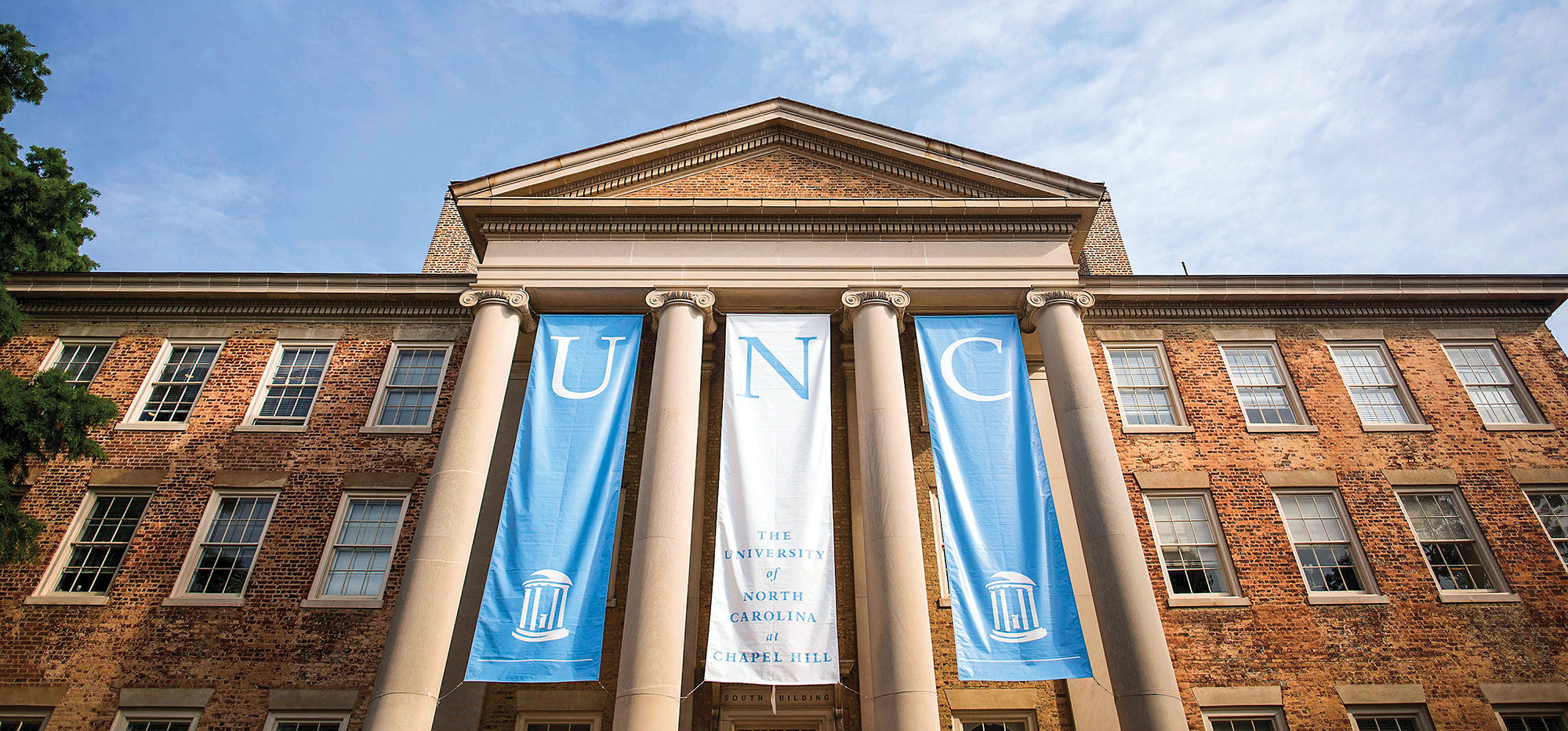University Goal: Balance Budget by Summer 2022
Posted on March 24, 2021

Last summer, UNC paused its budget process to put in deficit-mitigation measures. The process was restarted in September. (UNC photo)
As UNC administrators work toward their goal of a balanced budget by June 2022 — having operated without one for nearly a decade — limitations on growth and flexibility will remain in place at least through this fiscal year.
The budget troubles have been explained in three broad categories. Two of them are as easy to understand as they are daunting:
• The up to $200 million cost of the pandemic in lost revenues from housing, dining, parking, patient care and athletics, plus large outlays for testing and other safety protocols.
• A backlog of $850 million in deferred maintenance of building operating systems. For many years, this area has consistently lacked a funding mechanism that can keep up with needs, so the backlog has been piling up. It includes critical needs; for instance, Bingham Hall’s classrooms and offices are padlocked on Polk Place.
The lost COVID-19 revenues are expected to rebound. The University has received $43 million in federal relief funds and expects to get another $45 million — half to be used for direct aid to students and half for institutional needs.
Deferred maintenance is a perpetual problem that relies largely on state appropriations, but UNC hopes that good news in Raleigh — a revised forecast shows this fiscal year’s revenues up 15 percent from last year — could result in funding for a long list of repairs and renovations. Officials caution that these are one-time solutions; deferred maintenance will always be with us.
The third category, a roughly $100 million structural deficit in the University’s central funding sources, is thornier. This is, in simplest terms, as Chancellor Kevin Guskiewicz put it recently, “a mismatch of our revenues and expenses.”
“These deficits make budget reductions the only responsible step,” said Executive Vice Chancellor and Provost Robert Blouin. “Budget cuts always hurt, especially in the short term, but they do not have to have a catastrophic effect on the campus. Done strategically, budget reductions force everyone to align resources with the University’s mission.”
Vice Chancellor for Finance and Operations Nate Knuffman said UNC is making progress on developing a centralized budget model. “Carolina has operated in a decentralized financial environment that is inefficient and out of date,” Knuffman said. “This new centralized budget will help preserve the financial well-being of the University for years to come.”
Last summer, UNC paused its budget process to put in deficit-mitigation measures. The process was restarted in September, and financial officials held two rounds of individual meeting with leaders of more than 30 campus units to assess impacts of operational and personnel reductions. The result was a 1.5 percent reduction to personnel funds and a 7.5 percent reduction to certain operating funds. This was not an across-the-board pay cut but a reduction by attrition due to retirement and other positions vacated.
UNC also plans to eliminate some senior level positions — specifically associate vice chancellors and vice chancellors — that could generate more than $2 million in annual savings. University leaders said they also may ask senior administrators to take a temporary salary reduction and are still determining those details. They also are reconsidering the cost of leased space, looking toward better use of existing campus space.
Guskiewicz said the University could begin to “expand flexibility” of the budget sometime in the fiscal year that starts June 1.
